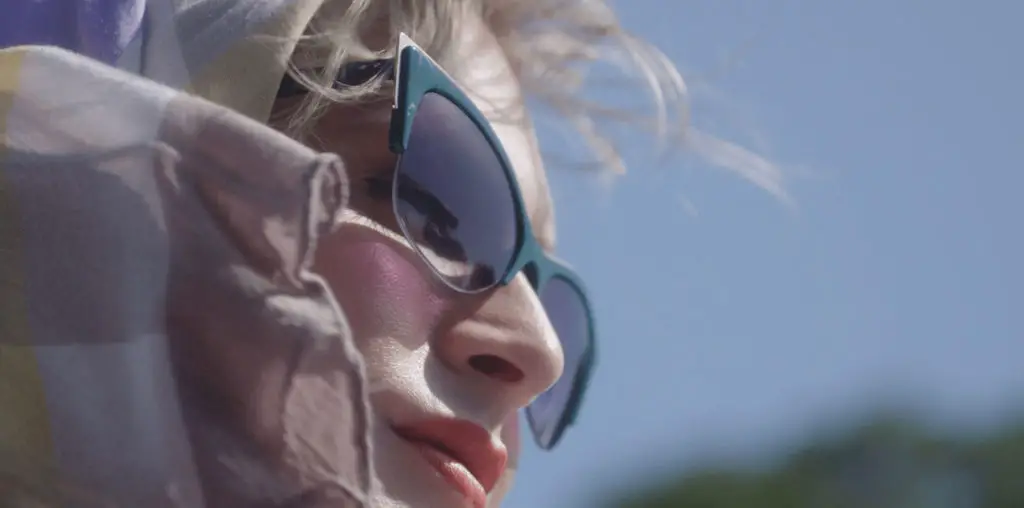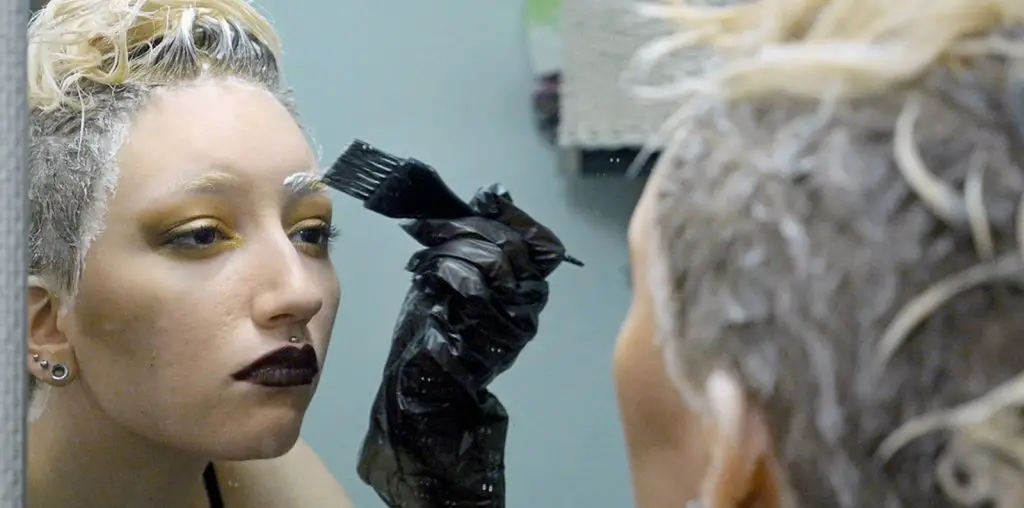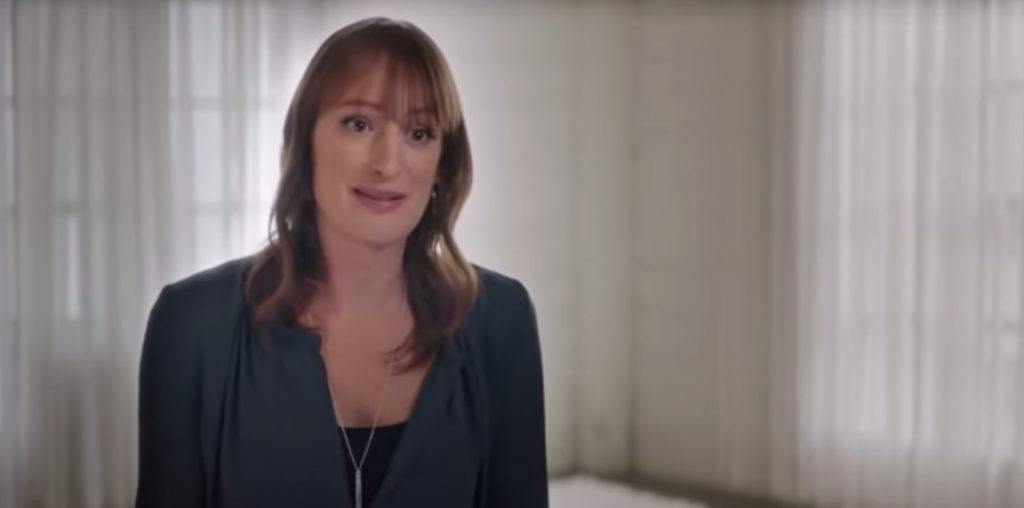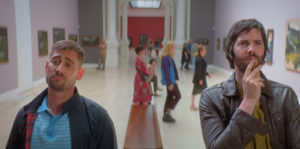
Georgian filmmaker Giga Agladze’s The Other Me is a surrealistic-tinged take on identity, relationships, and life. Executive produced by legendarily odd director David Lynch, I expected this to be stranger than it ultimately is. Don’t get me wrong, there are some Twilight Zone-like things afoot, but after getting a taste of it, I was hoping for the dramatic mystery-thriller to go full-on Mandy gonzo with the weirdness.
Our protagonist is Irakli (played passionately by Jim Sturgess), an out-of-work architect/bartender. He is in the midst of an early mid-life crisis due to his failing marriage with Nutsa (Antonia Campbell-Hughes) and the unfortunate news that he has a condition that will soon render him blind. When not arguing with his wife or wallowing in sorrow, Irakli loves to take trips to the art museum with his best buddy, Giorgi (Michael Socha).
One fateful day Irakli falls asleep on a bus, awaking at the end of the line at a stop in the woods. He meets a stranger (Roger Ashton-Griffiths) who offers some foreshadowing wise words about how “if you close your eyes, you can be anywhere.” He then has an almost dream-like encounter with an alluring woman named Nino (the magnetic trans actress Andreja Pejic), who lives alone in a cabin in the woods. She tells Iraki that she has no name, which leaves the audience guessing if we are in for a blossoming love story or a horrific fairy tale (which Nino makes a joking reference to).
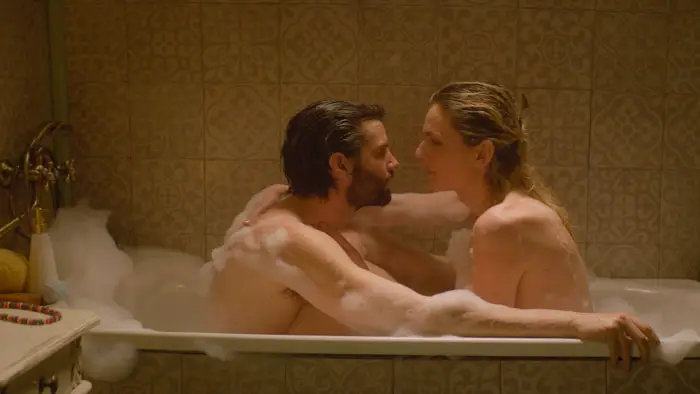
“…Irakli falls asleep on a bus, awaking at the end of the line at a stop in the woods.”
This setup would make for a fascinating horror flick. Still, aside from a few dream-like sequences and visions, The Other Me is a primarily ordinary, run-of-the-mill drama about coming to terms with your own identity amid life-altering physical and emotional changes. Writer/director Agladze crafts what is seemingly a metaphor for the process of becoming trans. There are flashbacks to Irakli as a boy whose father and other kids physically and verbally abused. There are many other examples of duality and struggles with identity throughout, which further supports the gender dysphoria subtext. Irakli is either at peace or full of life when he’s with Nino or at the art museum, but angry, argumentative, or sad when he’s not.
I enjoyed Agladze’s strange little touches, like characters in the paintings at the art museum moving around. When Irakli has visions of people with either no face or animal faces, a snake slithering on the hand of a character who betrays him is also striking. At one point, the lead imagines himself and Nutsa together in a sprawling field, much like the stranger foretold. These are all strange touches sprinkled into the drama of dealing with infidelity and blindness, but I wanted more.
It feels like The Other Me teases us Lynchian oddity but never goes all the way. The closest it comes is a sequence where Nino and Irakli see some characters carrying large, heavy bags up a steep hill, which we find out is the weight of their suffering. Once we’ve accepted the weirdness, we’re ready for more, but instead, the film focuses too much on inconsequential subplots, like the affairs and work-life of Nutsa. There was a Twilight Zone stop sign up ahead, but Agladze chose to go down the conventional path for most of the ride.
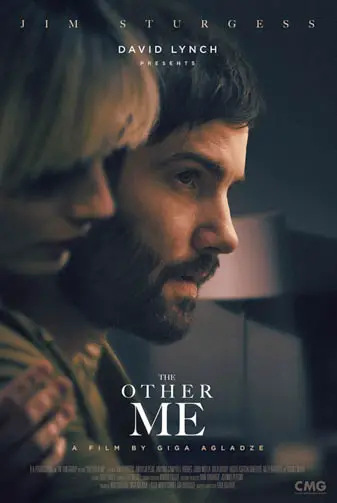
"…enjoyed Agladze's strange little touches..."
